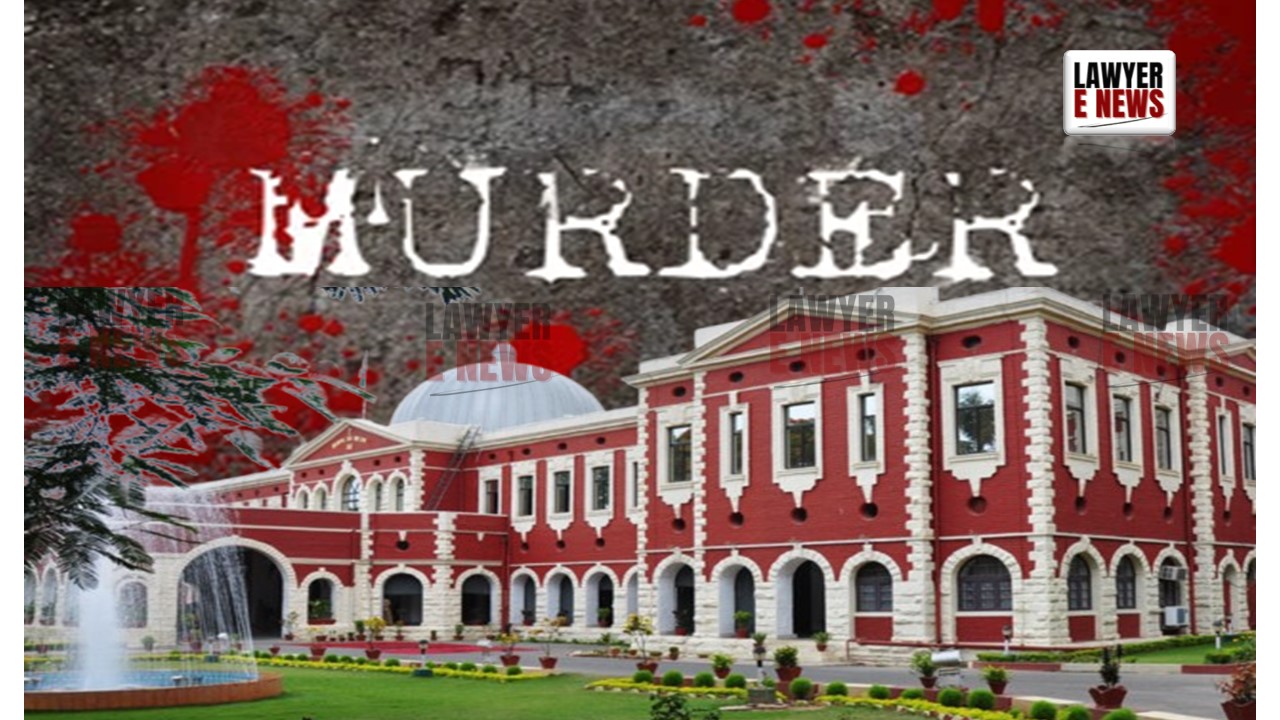-
by Admin
15 February 2026 5:35 AM



Convictions under Sections 302/34 and 120B IPC overturned; Court stresses necessity of corroborative evidence beyond motive.
The High Court of Jharkhand at Ranchi has overturned the convictions of Gauri Shankar Nath Tiwary and others in a 1993 murder case, emphasizing the insufficiency of motive alone for securing a conviction. The bench, comprising Justices Ratnaker Bhengra and Ambuj Nath, delivered the judgment on 14th May 2024, acquitting the appellants who had been sentenced to life imprisonment for the murder of Braj Kishore Nath Tiwari.
The case originated from the murder of Braj Kishore Nath Tiwari on 22nd August 1993. The prosecution alleged that the appellants, driven by various motives including political rivalry and disputes over temple management, conspired and executed the murder. The trial court convicted the appellants under Sections 302/34 and 120B of the Indian Penal Code, sentencing them to life imprisonment. The appellants challenged the conviction, arguing that the prosecution’s case was based solely on alleged motives without substantial evidence linking them to the crime.
The court affirmed that the deceased, Braj Kishore Nath Tiwari, died a homicidal death due to injuries inflicted by a sharp weapon. “The post-mortem report and the testimony of Dr. Ram Sevak Sahu conclusively establish the homicidal nature of the death,” the bench noted. Injuries included multiple incised wounds on the head, consistent with a fatal assault.
Despite establishing the homicidal death, the court found that the prosecution failed to provide sufficient evidence directly linking the appellants to the crime. The court emphasized that “motive alone, without corroborative evidence, is insufficient to sustain a conviction for murder.” The lack of eyewitnesses, the absence of incriminating articles, and no evidence of the appellants being last seen with the deceased contributed significantly to their acquittal.
Several prosecution witnesses attributed different motives to the appellants, ranging from political succession desires to temple fund embezzlement and personal vendettas. However, the court remarked, “Motive, however strong, cannot be the sole basis for a murder conviction. There must be corroborative evidence that links the accused to the crime.”
The court discussed the principles of evaluating evidence in murder cases, reiterating the necessity of corroborative evidence to support convictions based on motive. “The learned Trial Court erred in convicting the appellants solely on the basis of their purported motives without substantial corroborative evidence,” the judgment stated.
Justice Ratnaker Bhengra observed, “Motive alone, without corroborative evidence, is insufficient to sustain a conviction for murder. The prosecution must provide concrete evidence that directly links the accused to the commission of the crime.”
The High Court’s decision to acquit the appellants underscores the judiciary’s adherence to the principles of criminal justice, particularly the requirement of corroborative evidence beyond motive in murder cases. This judgment sets a precedent emphasizing the necessity of concrete evidence for convictions, potentially impacting future prosecutions in similar cases.
Date of Decision: 14th May 2024
